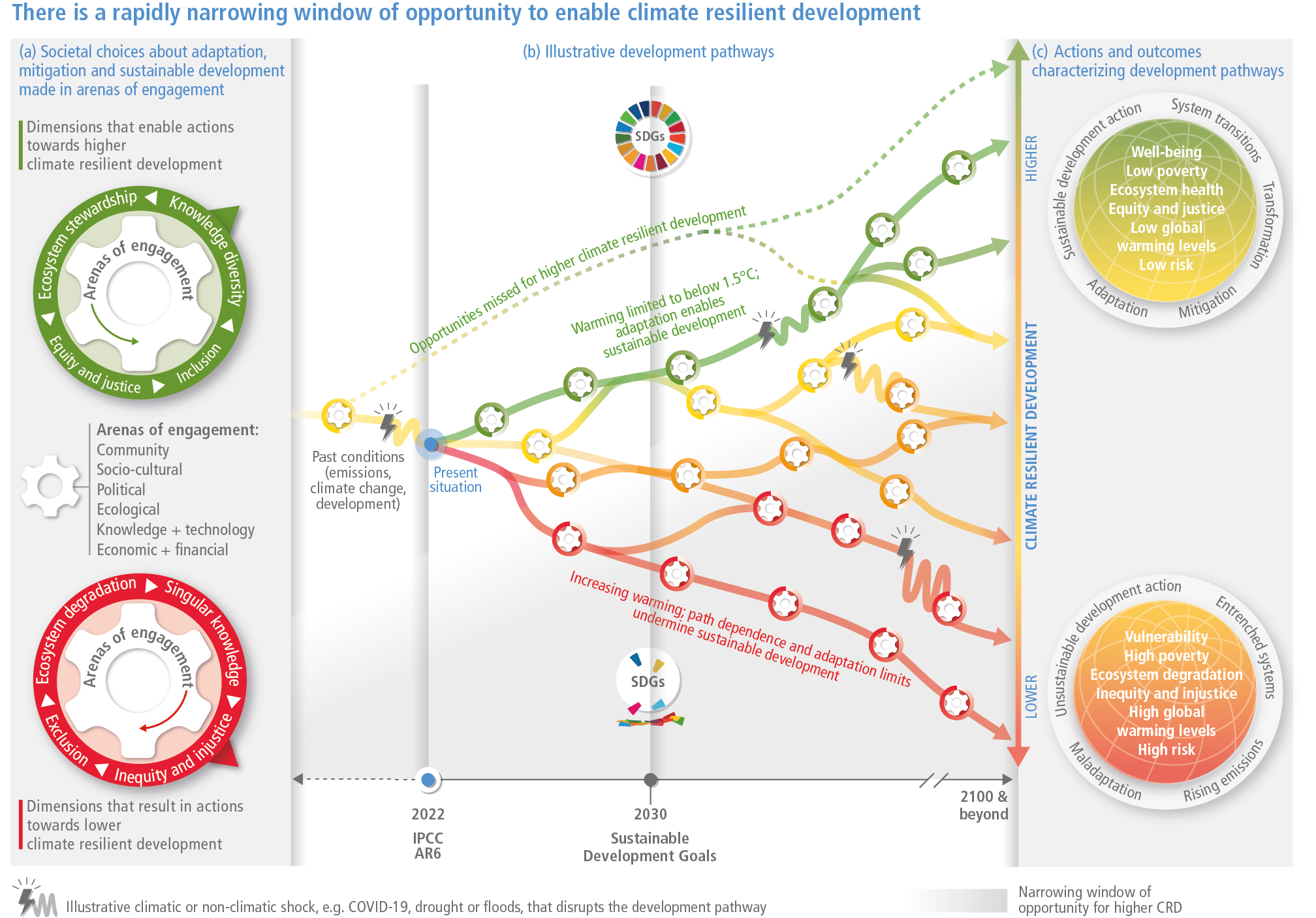We read the IPCC report so you don’t have to
Monday, March 7, 2022
Okay, so we read the Summary for Policymakers of the latest report from the UN’s Intergovernmental Panel on Climate Change (IPCC). That’s the group of the world’s leading climate scientists who have the unenviable job of combing through five to seven years worth of scientific papers and distilling them all into one report. Their full document is almost 3,700 pages and one per cent of that was enough nightmare fuel for one day. It’s heavy reading at an already challenging time but we must find a way to hear this urgent message.
Here are a few of my big takeaways from this week’s major climate report into the impacts of, vulnerability to and adaptation in a warming world.

Only the earnest nerds at the IPCC could come up with such a complex way to say "act now fools"
Everything is interconnected
Humans and nature do not live separately. Our societies depend on the natural world in the most practical sense and climate change is undermining these life support systems. People are also not equally vulnerable to disasters like drought, floods, storms and wildfires It’s the poorest communities and countries who are feeling its worst effects.
This new report shows 3.3 to 3.6 billion people around the world are highly vulnerable to climate disasters. It’s also the most heavily degraded forests, rivers, lands and waters that struggle most, often in the same places. Climate change is already pushing societies and ecosystems beyond their ability to adapt.
Things could get ugly
In the near-term, the damage to people and nature will depend on their vulnerability. Plenty can be done to support adaptation in ways that strengthen communities and their environments, if wealthy governments provide the resources they need. But how bad things get after 2040 depends entirely on the trajectory we take in the next few short years.
Earth could lose three to 14 per cent of land animals if the world warms 1.5 degrees Celsius — but close to half if we let it warm five degrees. If we make better choices as a society, we can still avoid the worst impacts.
There’s a better way
This report goes into great detail about what it calls “Climate Resilient Development” — a very UN term for work to improve standards of living that makes people less vulnerable to climate disasters while at the same time reducing greenhouse gas emissions. It has pages of advice with practices, conditions and instructions for how the world can and must do things differently. It includes everything from urban land use planning to inclusive governance. Most importantly, it identifies the need to mobilize financing for projects that contribute to a better world.
Join the movement for post-carbon communities





